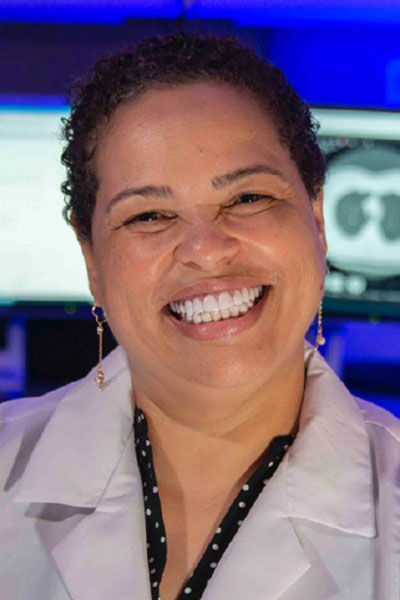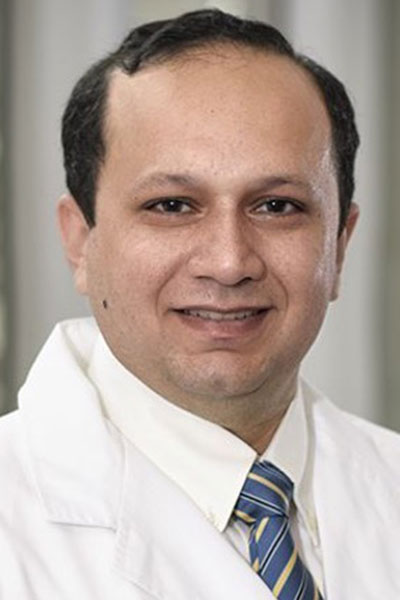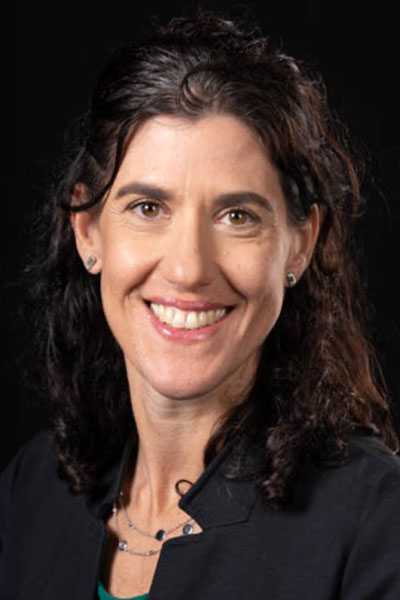Biologics have been a touchstone for airway disorders since the Food and Drug Administration approved omalizumab in 2003. Two decades later, multiple biologics have been approved in asthma and are in trials for COPD, and novel agents are filling development pipelines.
Presenters offered updates on this treatment landscape during the CHEST 2023 session, Biologics in Airway Disorders: Emerging Data, on Monday, October 9.

Diego J. Maselli, MD, FCCP, Professor and Chief of Pulmonary Diseases & Critical Care, University of Texas Health at San Antonio, and Director of Respiratory Care and the Severe Asthma Program at University Health, began with an overview of anti-IgE, anti-IL5, and anti-IL4 agents in asthma.
As an established anti-IgE agent, omalizumab and its importance in allergic asthma are well-known, and clinicians are likely familiar with treatment eligibility. However, newer data and experience in clinical practice are showing efficacy beyond label dosing ranges and no increased incidence of side effects when used during pregnancy, Dr. Maselli said.
Recent studies also indicate omalizumab plus allergen immunotherapy (AIT) remains an important tool for allergic asthma, showing improvements in rescue therapy, multiple symptom severity scores, and asthma control vs AIT alone.
Real-world data show significantly reduced rates of asthma exacerbations with the anti-IL5 agents mepolizumab and benralizumab. And observational studies suggest that these agents, along with the anti-IL4 agent dupilumab, can induce remission in some patients based on criteria such as no exacerbations, no oral corticosteroids, improvement in symptoms, and improvement in lung function.
“Remission is an achievable goal, but in only around one-third of the patients,” Dr. Maselli said. “We are creating the criteria, but we should try to aim as high as we can.”
Update on anti-TSLP and newer biologics in asthma

Njira Lugogo, MD, Professor and Director of the Michigan Medicine Asthma Program at the University of Michigan, reviewed the pathophysiologic mechanisms of thymic stromal lymphopoietin (TSLP) in asthma and the impact of targeting TSLP on a variety of outcomes.
Data show that the anti-TSLP agent tezepelumab is effective in reducing exacerbations in both non-type 2 and type 2 asthma phenotypes, with higher impact on patients with high eosinophil count and high fractional exhaled nitric oxide at baseline. Across various study populations, tezepelumab also showed lung function improvement, resulted in an oral corticosteroid sparing effect, and significantly reduced mucus scores.
New targets in asthma therapy include Ox40-Ox40 ligand and Janus kinase-signal transducer and activator of transcription signaling. Depemokimab, an ultralong-acting anti-IL5 antibody, offers hopes for twice-yearly dosing. And nanobodies could eventually replace monoclonal antibodies with similar clinical activity plus easier, less expensive manufacturing and improved stability both in storage and in circulation after dosing.
Biologics in COPD

The same biologics that have transformed asthma treatment have generally shown modest to no clinical improvement in COPD. Modest benefits in select populations have sparked phase 3 trials of benralizumab (RESOLUTE) and dupilumab (NOTUS), said Muhammad Adrish, MD, MBA, FCCP, Associate Professor of Pulmonary, Critical Care, and Sleep Medicine, Baylor College of Medicine.
Other biologics in trials for COPD include astegolimab, an anti-ST2 antibody; tozorakimab, an anti-IL33 agent; tezepelumab; and itepekimab, an anti-IL33 agent. Canakinumab and MEDI8968, anti-IL1 agents, and danirixin, a CXC motif chemokine receptor 2 agent, showed no benefit in COPD. Infliximab had no observable benefit in COPD, and etanercept was no better than prednisone.
Navigating the health care system

Developing new biologics is a complicated, time-consuming process. Getting approved agents into patients’ hands is just as trying. There are issues on the provider side, the patient side, and the practice side, said Meredith Turetz, MD, Assistant Professor of Pulmonary and Critical Care Medicine, Weill Cornell Medical College. And everything is complicated by expense—nearly the cost of a new car, if a patient were to pay the cash price out of pocket.
Every practice and setting has its own system to navigate approvals, so no one size fits all, Dr. Turetz said. Some practices have dedicated staff to deal with insurers and pharmaceutical assistance programs. Some work with specialty pharmacies, some work through health systems, and others use buy-and-bill. Whatever the system, opportunities for error and delay abound because every stakeholder has different, often competing, priorities.
These factors contribute to disparities in access to biologics and can lead to worse outcomes for patients, Dr. Turetz said.
Practices can boost approvals and reduce delays with dedicated staff who are intimately familiar with the guidelines insurers use. Clear progress notes with key information documenting medical necessity are key. And when claims are denied, try again with changes and corrections, she advised.
Join us at CHEST 2025
Save the date for the next Annual Meeting, October 19 to 22, 2025, in Chicago. CHEST 2025 will explore the latest advancements in pulmonary, critical care, and sleep medicine, with a focus on innovation and the future, just as the city itself embodies progress and reinvention.





